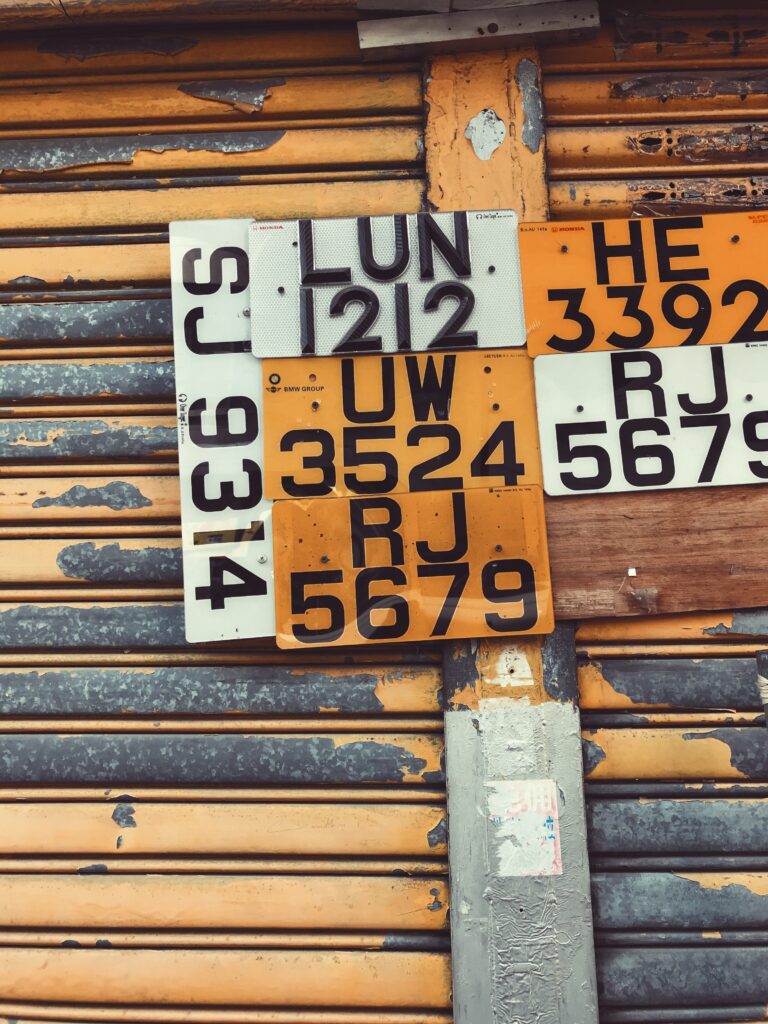In today’s world, it’s crucial to ensure that the professionals we hire are qualified and trustworthy. When it comes to plumbers, their expertise can make all the difference between a well-functioning home and a plumbing nightmare. But how can we be certain that the plumber we choose is truly licensed and qualified for the job? Fear not, because we have compiled a comprehensive guide that will walk you through the simple yet essential steps to verify a plumber’s license. By following these easy steps, you’ll have peace of mind knowing that your home’s plumbing is in the hands of a skilled and reputable professional.



This image is property of images.unsplash.com.
Understanding The Importance Of A Licensed Plumber
When it comes to plumbing issues in our homes or businesses, it’s important to recognize the benefits of hiring a licensed plumber. Licensed plumbers have undergone the necessary training and certification to ensure that they have the knowledge and skills to handle the job. They are familiar with the latest plumbing codes and regulations, which helps ensure that the work they do is up to standard.
Another benefit of hiring a licensed plumber is that they are required to carry insurance. This means that if any damage occurs during their work, their insurance will cover the cost of repairs. Hiring an unlicensed plumber may put you at risk of having to pay for any damages or repairs out of pocket.
Recognizing the benefits of licensed plumbers
Licensed plumbers have gone through a rigorous process to obtain their license. They have completed the necessary training and apprenticeships, and have passed both a written and practical exam. This ensures that they have the knowledge and practical skills necessary to handle any plumbing issue that may arise.
In addition, licensed plumbers are required to keep up with the latest industry standards and techniques through continuing education. This means that they are always up to date on the latest technologies and practices in the field.
Identifying risks of hiring unlicensed plumbers
While it may be tempting to hire an unlicensed plumber because they may offer lower prices, it’s important to understand the risks involved. Unlicensed plumbers may not have the required training or experience to handle complex plumbing issues. This can lead to subpar workmanship, which may result in costly repairs down the line.
Furthermore, unlicensed plumbers may not carry insurance, leaving you vulnerable in the event of any damages or accidents. Without insurance, you may be responsible for any costs associated with injuries or property damage that occur during the job.
Knowing the legalities of hiring licensed contractors
When hiring a plumber, it’s important to know the legalities surrounding the hiring of licensed contractors. In many states, it is illegal to hire an unlicensed plumber for certain types of plumbing work. This is because licensed plumbers are required to meet specific standards and adhere to local building codes and regulations.
By hiring a licensed plumber, you can ensure that you are not only getting quality workmanship, but also staying within the bounds of the law. This can provide you with peace of mind and protection against any potential legal issues that may arise from hiring an unlicensed contractor.
Navigating Your State’s Licensing Requirements
It’s important to remember that each state has its own set of rules and regulations when it comes to licensing plumbers. Understanding why every state has different rules can help you navigate your state’s specific requirements.
Comprehending why every state has different rules
The reason why every state has different rules regarding plumbing licenses is due to the fact that each state has its own unique set of needs and priorities. State licensing boards determine the requirements for obtaining a plumbing license based on factors such as population density, climate, and geographical considerations.
For example, states with a high population density and older infrastructure may have stricter licensing requirements to ensure that plumbers have the necessary skills and knowledge to handle the unique challenges of their region. On the other hand, states with a lower population density and newer infrastructure may have less stringent requirements.
Finding the licensing body in your state
To determine the licensing requirements in your state, you will need to find the appropriate licensing body. This is usually a state or local agency that oversees the licensing and regulation of plumbers. You can typically find this information by searching online or contacting your state’s department of labor or licensing board.
Once you have identified the licensing body, you can reach out to them for more information on the specific requirements for obtaining a plumbing license. They will be able to provide you with the necessary forms and guidance on how to proceed.
Understanding the specifics of your state’s requirements
Each state will have its own specific requirements for obtaining a plumbing license. These requirements may include a combination of education, training, and experience. Some states may require completion of a plumbing apprenticeship program, while others may require a certain number of years of practical experience.
It’s important to thoroughly research your state’s requirements to ensure that you meet all the necessary criteria. This will help you determine if the plumber you are considering hiring has met the requirements to obtain a license in your state.
Looking For Initial Verification Points
Before hiring a plumber, it’s crucial to verify their license to ensure that they are legitimate and qualified for the job. There are several initial verification points that you can check to confirm their licensing status.
Checking for physical proof of licensing
One of the first things you should do is ask the plumber to provide you with physical proof of their licensing. This can be in the form of a license card or certificate that is issued by the licensing body in your state. Make sure to examine the document closely to ensure that it is valid and up to date.
Assessing their business card and website
Another way to verify a plumber’s license is by checking their business card and website. Licensed plumbers often include their license number on their business cards and websites as a way to showcase their credentials. By cross-referencing the license number with the licensing body, you can confirm that it is valid and belongs to the plumber in question.
Investigating uniforms and service vehicles for licensing information
Licensed plumbers may also display their license information on their uniforms or service vehicles. Look for any signs or decals that indicate their licensing status. This can provide further confirmation that the plumber is licensed and operating within the parameters of the law.



This image is property of images.unsplash.com.
Carrying Out Online Verification
In addition to the initial verification points, it’s important to carry out online verification to further confirm a plumber’s license. This involves navigating through governmental websites and utilizing license verification tools provided by the licensing body.
Navigating through governmental websites
Start by visiting your state or local government’s website and look for the department or agency responsible for licensing plumbers. Once you have found the appropriate section, you should be able to access their license verification tool or database.
Entering plumber’s license number for verification
Using the license verification tool, enter the plumber’s license number to initiate the verification process. The tool will then search the database for the license information associated with that number.
Interpreting the results from license verification search
If the plumber’s license is valid and active, the search results should confirm this information. It may also provide additional details such as the expiration date of the license and any disciplinary actions taken against the plumber.
However, if the search does not yield any results or indicates that the license is expired or suspended, it’s a red flag that the plumber may not be licensed or may have had their license revoked. In such cases, it’s best to consider alternative options for your plumbing needs.
Reading And Understanding License Classifications
When verifying a plumber’s license, it’s important to understand the different classifications of plumbing licenses. This will help you determine if the plumber has the appropriate qualifications for the specific task at hand.
Knowing different classifications of plumbing licenses
Plumbing licenses are typically classified based on the level of experience, training, and education of the plumber. The specific classifications may vary by state, but generally include apprentice, journeyman, and master plumber licenses.
An apprentice license is obtained by individuals who are just starting their plumbing careers and are usually required to work under the supervision of a licensed journeyman or master plumber. A journeyman license indicates that the plumber has completed the necessary training and experience requirements and is qualified to work independently. A master plumber license is the highest level and signifies that the plumber has extensive experience and knowledge in the field.
Matching the task with the plumber’s license classification
When hiring a plumber, it’s important to match the task at hand with the plumber’s license classification. For example, if you need a simple repair or installation, a journeyman plumber may be sufficient. However, for more complex projects or those requiring specialized expertise, such as commercial plumbing or gas line installation, it may be necessary to hire a master plumber.
By ensuring that the plumber’s license classification aligns with the specific task, you can have confidence that they have the necessary skills and qualifications to complete the job effectively and safely.
Determining if additional classifications are needed based on your project
In some cases, your project may require additional license classifications beyond what the plumber initially possesses. For example, if your project involves both plumbing and electrical work, it may require hiring a plumber who holds an additional electrical license.
Before hiring a plumber, assess the scope of your project and determine if any additional license classifications are necessary. This will help ensure that all aspects of the project are completed by qualified individuals and in compliance with applicable regulations.
Verifying Insurance Coverage
When hiring a plumber, it’s crucial to know if they have insurance coverage. This is important for both your protection and the plumber’s protection in the event of any accidents or damages that may occur during the course of the work.
Knowing why insurance matters for plumbers
Insurance is important for plumbers because it provides coverage for any damages, injuries, or accidents that may occur during their work. Without insurance, both the plumber and the client may be held responsible for any costs associated with such incidents.
By hiring a plumber with insurance coverage, you can have peace of mind knowing that you are protected against any unforeseen circumstances that may arise during the project.
Asking for proof of insurance from the plumber
Before hiring a plumber, it’s important to ask for proof of insurance. This can be in the form of an insurance certificate or policy documentation. Take the time to carefully review the document to ensure that it is valid, up to date, and covers the specific scope of work for your project.
If necessary, you can also reach out to the insurance company directly to verify the plumber’s coverage and ensure that it is active and in good standing.
Checking if the insurance policy is active and covers your specifics
In addition to verifying the plumber’s insurance coverage, it’s important to ensure that the policy covers the specific scope of work for your project. Different insurance policies may have varying coverage limits and exclusions, so it’s crucial to discuss the details with the plumber and confirm that any potential risks associated with your project are adequately covered.
By confirming the plumber’s insurance coverage is active and tailored to your specific needs, you can mitigate any potential liabilities or financial burdens that may arise as a result of the project.



This image is property of images.unsplash.com.
Checking For Any Past Complaints Or Violations
When hiring a plumber, it’s important to check if they have any past complaints or violations. This can provide insight into their work ethic, professionalism, and the quality of their service.
Understanding why checking for past complaints is crucial
Checking for past complaints or violations is crucial as it provides an indication of the plumber’s track record and any potential red flags. If a plumber has a history of customer complaints or violations, it may be a warning sign that their workmanship or professionalism is questionable.
By conducting a thorough background check, you can make an informed decision and choose a plumber with a clean record and positive reputation.
Searching for violations on the state’s website
To check for any past complaints or violations, visit your state’s licensing board website or regulatory authority’s website. These organizations often maintain a public record of complaints and violations filed against licensed plumbers.
Use the search function on the website to inquire about the plumber’s history. Enter the plumber’s name or license number to generate any available records.
Interpreting the nature of complaints and violations and how they relate to your project
If any records are found, it’s important to carefully read and interpret the nature of the complaints or violations. Look for patterns or recurring issues that may raise concerns about the plumber’s reliability or workmanship.
Keep in mind that not all complaints or violations may be significant or indicative of the plumber’s overall performance. However, if there are repeated complaints or serious violations related to the type of project you have, it may be wise to consider other options.
Confirming Continual Education
Continual education is a vital aspect of the plumbing industry, as it helps plumbers stay up to date on the latest technologies, techniques, and regulations. When hiring a plumber, it’s important to confirm that they engage in continual education to ensure their skills and knowledge are current.
Finding out about requirements for continual education in your state
Different states have various requirements for continual education in the plumbing industry. Some states may require plumbers to complete a certain number of hours of approved courses or workshops each year, while others may have fewer or no specific requirements.
To determine the requirements in your state, consult your state’s licensing board or regulatory authority. They will be able to provide you with details on what is expected from licensed plumbers in terms of continuing education.
Asking the plumber about any recent training or skills development
When vetting a plumber, it’s important to inquire about their recent training or skills development. Ask if they have participated in any courses, workshops, or seminars related to the plumbing trade.
A plumber who actively seeks out additional training demonstrates their commitment to professional growth and staying current with industry advancements. This can be reassuring and indicative of their competence.
Understanding the importance of up-to-date training in the plumbing industry
The plumbing industry is constantly evolving, with new technologies, materials, and techniques being introduced. It is essential for plumbers to stay up to date with these advancements to provide the best possible service to their clients.
Up-to-date training ensures that plumbers are familiar with the latest codes, regulations, and industry best practices. It allows them to troubleshoot and resolve complex plumbing issues more effectively and efficiently.
By confirming that a plumber engages in continual education, you can have confidence that they are equipped with the necessary skills and knowledge to handle your plumbing needs.
Assessing Their Reputation And Reviews
When hiring a plumber, it’s vital to assess their reputation and reviews. This will give you insight into their competency, professionalism, and customer satisfaction.
Searching for reviews online
Start by searching for reviews of the plumber online. This can be done through search engines, review websites, or even social media platforms. Look for reputable sources that provide unbiased feedback from previous clients.
Familiarize yourself with the plumber’s overall rating and read through a variety of reviews to get a comprehensive understanding of their strengths and weaknesses.
Reading through both positive and negative reviews
It’s important to read through both positive and negative reviews to get a balanced perspective. Positive reviews can provide reassurance regarding the plumber’s reliability, quality of work, and professionalism. On the other hand, negative reviews can help identify any recurring issues or red flags that may be cause for concern.
Pay attention to specific details mentioned in the reviews, such as timeliness, communication, pricing, and overall satisfaction with the services provided.
Dissecting fake versus genuine reviews
While reviews can be a valuable source of information, it’s important to be cautious of fake or misleading reviews. Some unscrupulous individuals or businesses may post fake positive reviews to boost their reputation or negative reviews about competitors.
To help identify genuine reviews, look for detailed and specific feedback that highlights specific interactions or experiences with the plumber. Genuine reviews often include personal anecdotes or mention specific aspects of the service that were particularly noteworthy.
If you come across reviews that seem excessively positive or negative without much substance, it may be an indication that they are not entirely genuine. Use your judgment and consider the overall consensus and patterns in the reviews to make an informed decision.
What To Do If The Plumber Is Not Licensed
If you discover that a plumber you are considering hiring is not licensed, it’s important to understand the risks and take appropriate actions. Dealing with an unlicensed plumber can pose potential liabilities, both legally and in terms of workmanship.
Comprehending the risks and liabilities
Hiring an unlicensed plumber can expose you to several risks and liabilities. Firstly, unlicensed plumbers may lack the necessary training and qualifications to perform the work correctly, leading to subpar results or further damage to your plumbing system.
Secondly, unlicensed plumbers may not carry insurance, leaving you vulnerable in case of any accidents or damages. If any injuries occur on your property or if there are damages resulting from the plumbing work, you may be held liable for those expenses.
Lastly, hiring an unlicensed plumber may also put you in violation of local laws and regulations, which could result in penalties or fines.
Reporting unlicensed plumbers to the appropriate bodies
If you encounter an unlicensed plumber, it’s essential to report them to the appropriate authorities. This helps protect other consumers from potential fraudulent or substandard service providers. Contact your state’s licensing board or regulatory authority to report the unlicensed plumber and provide them with any relevant information.
By reporting unlicensed plumbers, you contribute to safeguarding the plumbing industry’s integrity and ensure that only qualified professionals are carrying out plumbing work.
Exploring your other options for plumbing work
When faced with an unlicensed plumber, it’s important to explore alternative options for your plumbing needs. This may involve conducting additional research to find licensed plumbers in your area or seeking recommendations from friends, family, or neighbors.
Take the time to vet potential plumbers, verify their licenses and insurance, and assess their reputation through reviews and referrals. By selecting a licensed plumber, you can have confidence in their qualifications, professionalism, and ability to deliver quality work.
In conclusion, understanding the importance of hiring a licensed plumber is crucial for ensuring quality workmanship, compliance with regulations, and protection against potential liabilities. By navigating your state’s licensing requirements, verifying a plumber’s license, confirming insurance coverage, checking for past complaints or violations, and assessing their reputation and reviews, you can hire a qualified and reputable plumber for your project. In the event that the plumber is not licensed, it is important to comprehend the associated risks and take appropriate actions, such as reporting them to the proper authorities and exploring other options for your plumbing needs.
